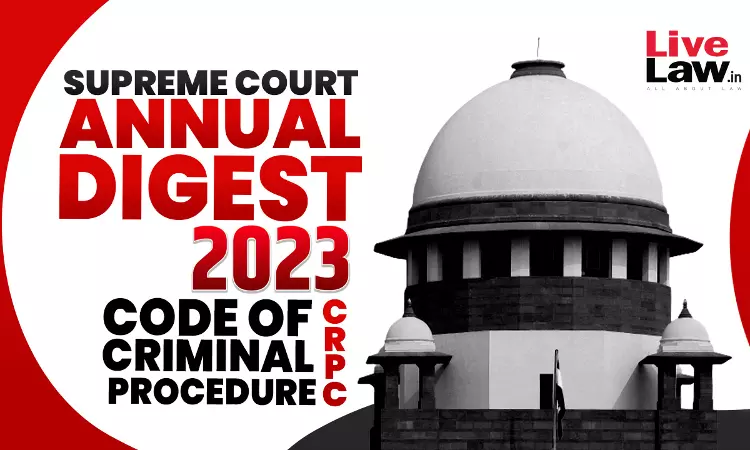Supreme Court Annual Digest 2023-Code Of Criminal Procedure (CrPC)
LIVELAW NEWS NETWORK
4 Jan 2024 11:55 AM IST

Next Story
4 Jan 2024 11:55 AM IST
Code of Criminal Procedure, 1973Code of Criminal Procedure, 1973 - Curtailment of 15 days of police custody by any extraneous circumstances, act of God, an order of Court not being the handy work of investigating agency would not act as a restriction. (Para 60) 2023 LiveLaw (SC) 611Code of Criminal Procedure, 1973 - Difference in the power of Police to register and investigate an FIR...
